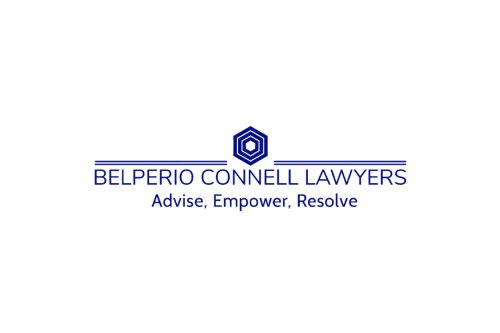Best Restructuring & Insolvency Lawyers in Adelaide
Share your needs with us, get contacted by law firms.
Free. Takes 2 min.
List of the best lawyers in Adelaide, Australia
About Restructuring & Insolvency Law in Adelaide, Australia
Restructuring and insolvency law in Adelaide, South Australia is a highly specialised area that deals with the financial difficulties of companies and individuals. Adelaide, as a major commercial centre, sees its share of both corporate and personal financial challenges. Restructuring involves reorganising a business's structure or operations to improve financial stability and performance. Insolvency, on the other hand, refers to situations where a person or company cannot pay their debts when they are due. Both processes are governed by federal laws, with support from local South Australian regulations and courts. These laws help to protect creditors' rights, facilitate the recovery or restructure of businesses, and provide options for individuals facing bankruptcy.
Why You May Need a Lawyer
There are many circumstances in which someone might need the help of a lawyer specialising in restructuring and insolvency. Common scenarios include:
- Your business is struggling to pay suppliers, employees, or taxes on time
- You have received a statutory demand, bankruptcy notice, or legal proceedings for unpaid debts
- You wish to restructure your company to avoid insolvency and protect jobs
- As a creditor, you want to understand your rights and options for recovering debts owed to you
- You are considering voluntary administration, liquidation, or entering into a deed of company arrangement
- You are facing personal bankruptcy or issues related to personal guarantees
- You need guidance on director duties and potential personal liability if your company is at risk of insolvency
A lawyer can help assess your situation, explain your options, and guide you through complex legal processes that can protect your interests and minimise your risks.
Local Laws Overview
Restructuring and insolvency in Adelaide are primarily governed by federal legislation such as the Corporations Act 2001 (Cth) for companies and the Bankruptcy Act 1966 (Cth) for individuals. Key insolvency appointments include voluntary administration, liquidation, and receivership for companies, while individuals may experience bankruptcy and personal insolvency agreements. The Federal Court, Federal Circuit and Family Court, and the Supreme Court of South Australia play important roles in these cases. South Australian practitioners must also be mindful of state-specific aspects, such as the application of local property laws or the role of the Public Trustee. Local courts and professionals play a supportive role in resolving disputes and administering the insolvency process in line with both Commonwealth and State frameworks.
Frequently Asked Questions
What is the difference between restructuring and insolvency?
Restructuring is the process of reorganising a business to improve its financial situation, often to avoid insolvency. Insolvency occurs when an individual or company cannot pay debts when they fall due, which may lead to formal procedures like liquidation or bankruptcy.
What are the main insolvency procedures in Adelaide?
For companies, the main procedures are voluntary administration, liquidation, and receivership. For individuals, the two key processes are bankruptcy and personal insolvency agreements.
Can I avoid liquidation if my business is struggling?
Yes, there are options such as voluntary administration, restructuring, refinancing, or negotiating with creditors. A lawyer can help you understand the best pathway based on your circumstances.
What are the consequences of going bankrupt in Adelaide?
If you go bankrupt, your assets may be sold to pay creditors, your ability to obtain credit will be restricted, and your name will be on the National Personal Insolvency Index. Bankruptcies typically last three years but this can be extended.
Can a director be held personally liable for company debts?
Directors may be personally liable if they allow a company to trade while insolvent or if they have provided personal guarantees. It's important to seek advice if you are concerned about liability.
What should I do if I receive a statutory demand or bankruptcy notice?
You should seek legal advice immediately. Ignoring these notices can lead to serious consequences, including winding up of your company or being declared bankrupt.
Can creditors take my home if I become insolvent?
Creditors may have a claim against your assets, including your home, especially if it is not protected or if you have given it as security. The specifics depend on your situation and applicable exemptions.
How are employees affected if a company enters liquidation?
In most cases, employees rank as priority creditors for unpaid wages, leave entitlements, and some other amounts. There are also government safety net schemes, such as the Fair Entitlements Guarantee, that may assist.
How long does a restructuring or insolvency process take?
The duration varies widely depending on the complexity of the case. Bankruptcy generally lasts three years, while the administration or liquidation of a company can take months or years.
Are there alternatives to bankruptcy for individuals?
Yes, alternatives include debt agreements, personal insolvency agreements, and informal arrangements with creditors. Legal advice can help you explore these options.
Additional Resources
If you need more information or assistance, the following resources can be helpful:
- Australian Securities and Investments Commission (ASIC) - Regulates companies and company insolvency
- Australian Financial Security Authority (AFSA) - Handles personal bankruptcies and insolvency information
- South Australian Supreme Court - Handles insolvency-related legal proceedings
- South Australian Legal Services Commission - Provides free or low-cost legal advice
- Chartered Accountants Australia and New Zealand - For finding qualified insolvency practitioners
- Business SA - Offers support and guidance to struggling businesses in Adelaide
Next Steps
If you are experiencing financial difficulty, the most important step is to seek professional advice early. Start by gathering documents relating to your financial position, such as recent financial statements, contracts, and correspondence with creditors. Arrange a consultation with an experienced restructuring and insolvency lawyer in Adelaide who can review your situation and explain your options. Being proactive can help preserve your rights and improve the outcome for all parties involved. If you are a director, act quickly to understand your duties and protect yourself from personal risk. Timely legal support can make a significant difference to your financial future.
Lawzana helps you find the best lawyers and law firms in Adelaide through a curated and pre-screened list of qualified legal professionals. Our platform offers rankings and detailed profiles of attorneys and law firms, allowing you to compare based on practice areas, including Restructuring & Insolvency, experience, and client feedback.
Each profile includes a description of the firm's areas of practice, client reviews, team members and partners, year of establishment, spoken languages, office locations, contact information, social media presence, and any published articles or resources. Most firms on our platform speak English and are experienced in both local and international legal matters.
Get a quote from top-rated law firms in Adelaide, Australia — quickly, securely, and without unnecessary hassle.
Disclaimer:
The information provided on this page is for general informational purposes only and does not constitute legal advice. While we strive to ensure the accuracy and relevance of the content, legal information may change over time, and interpretations of the law can vary. You should always consult with a qualified legal professional for advice specific to your situation.
We disclaim all liability for actions taken or not taken based on the content of this page. If you believe any information is incorrect or outdated, please contact us, and we will review and update it where appropriate.













